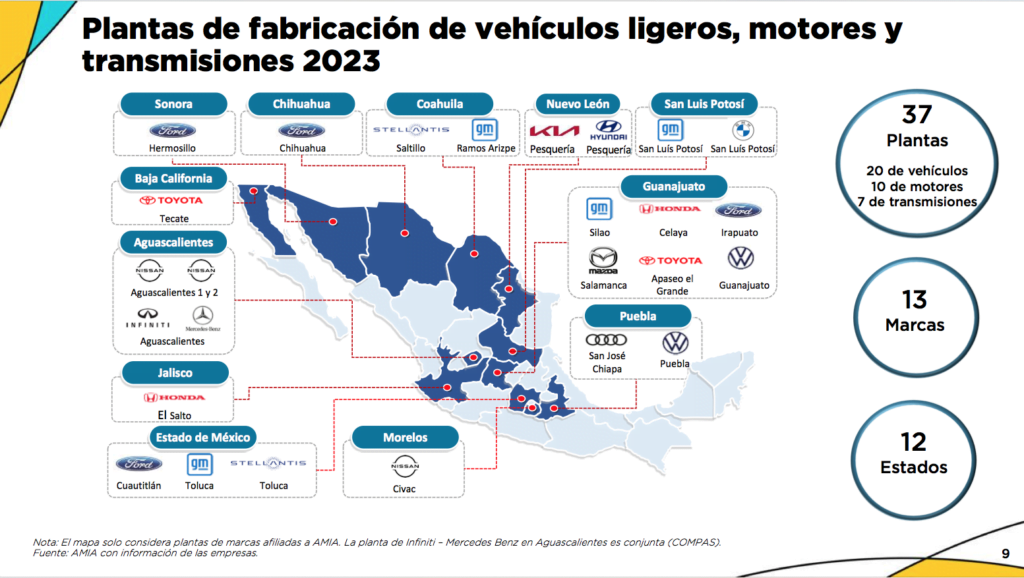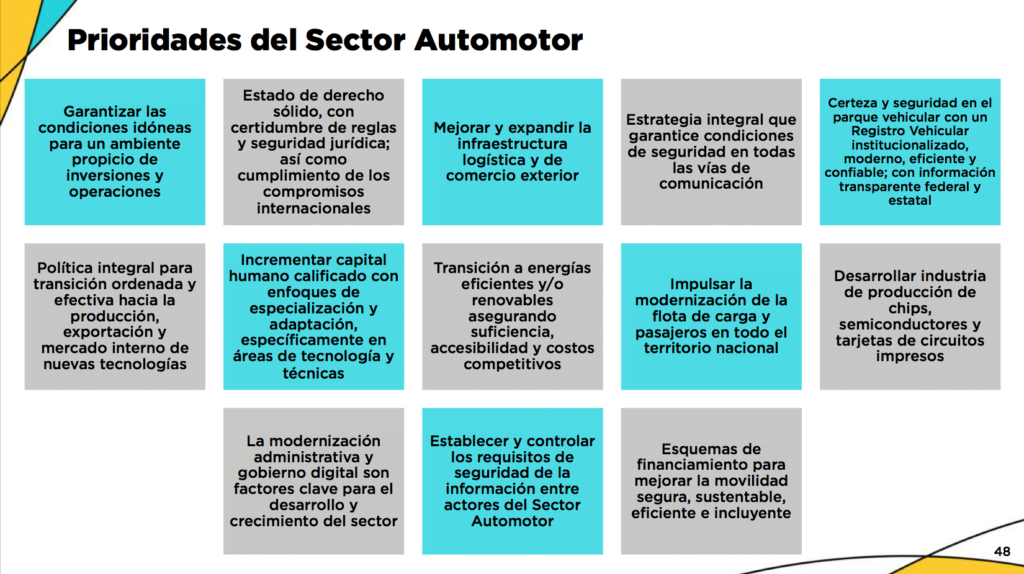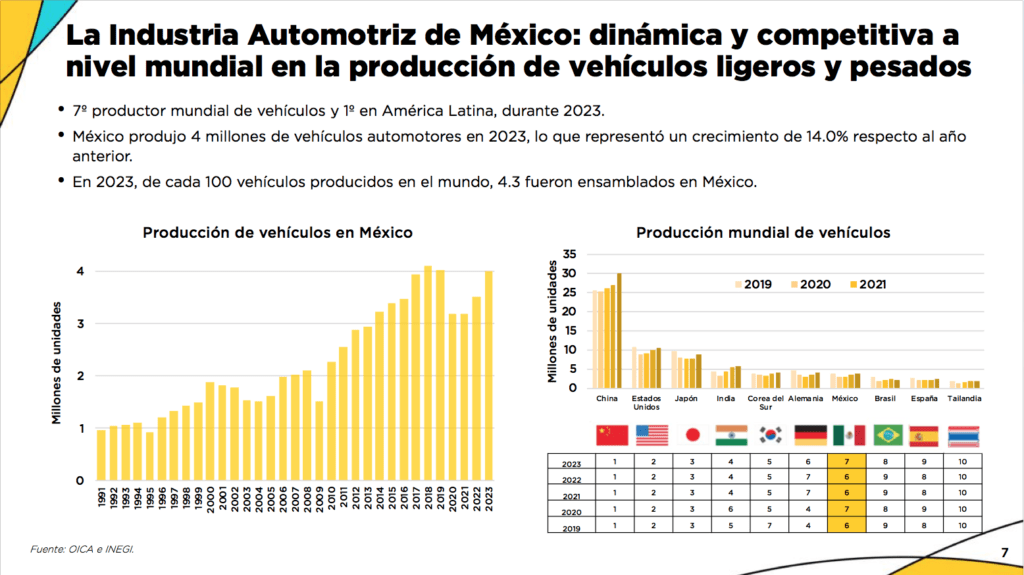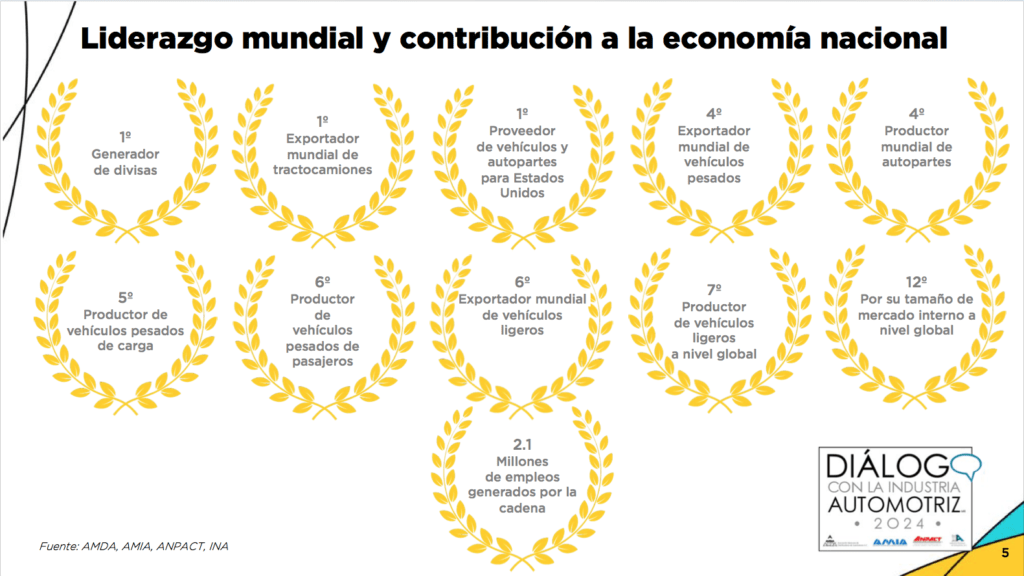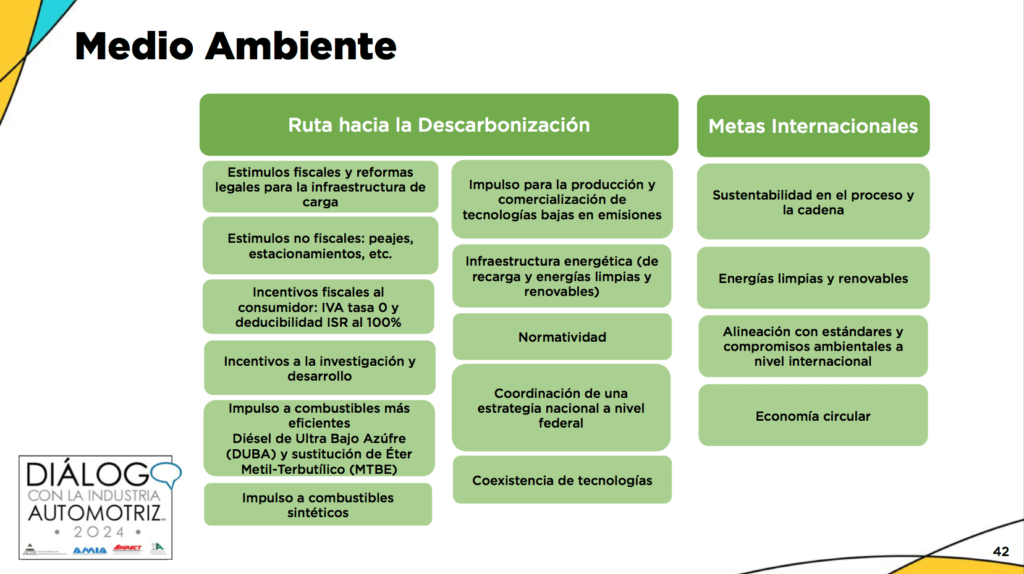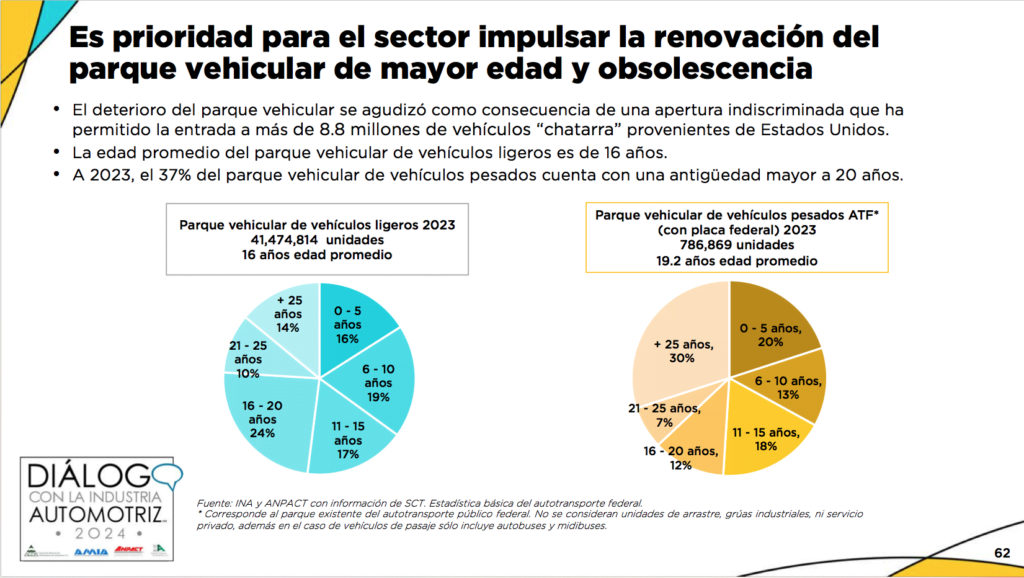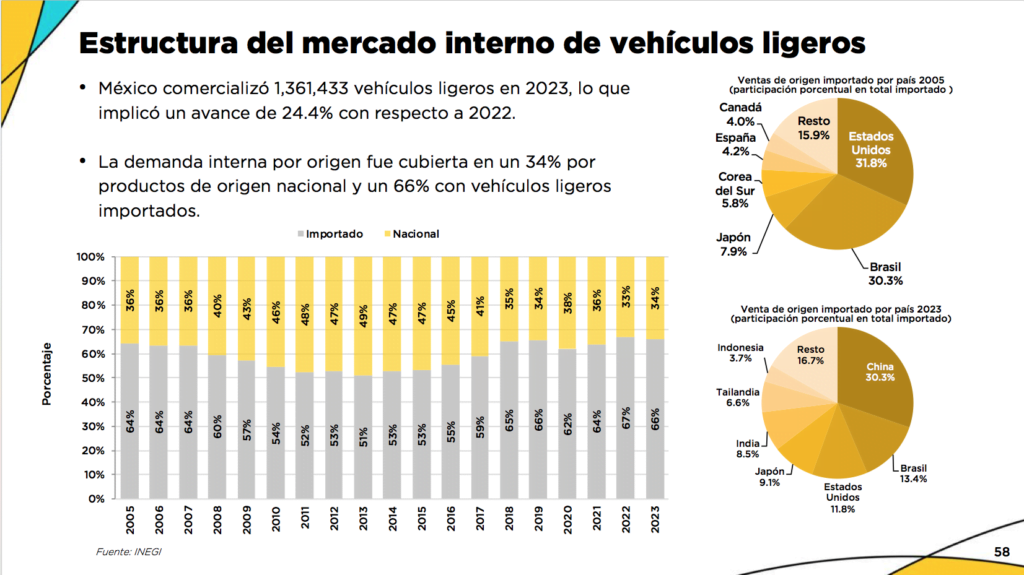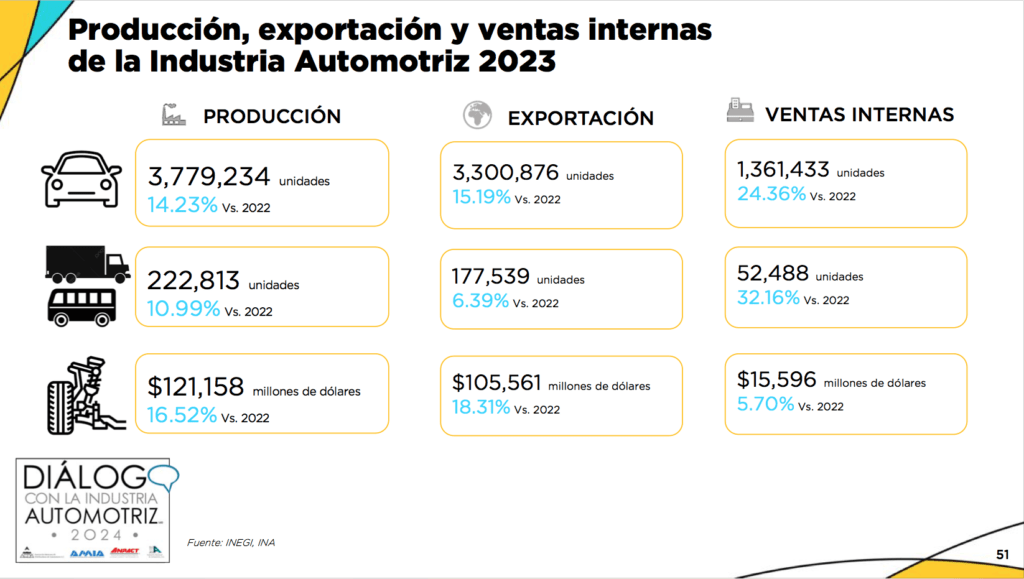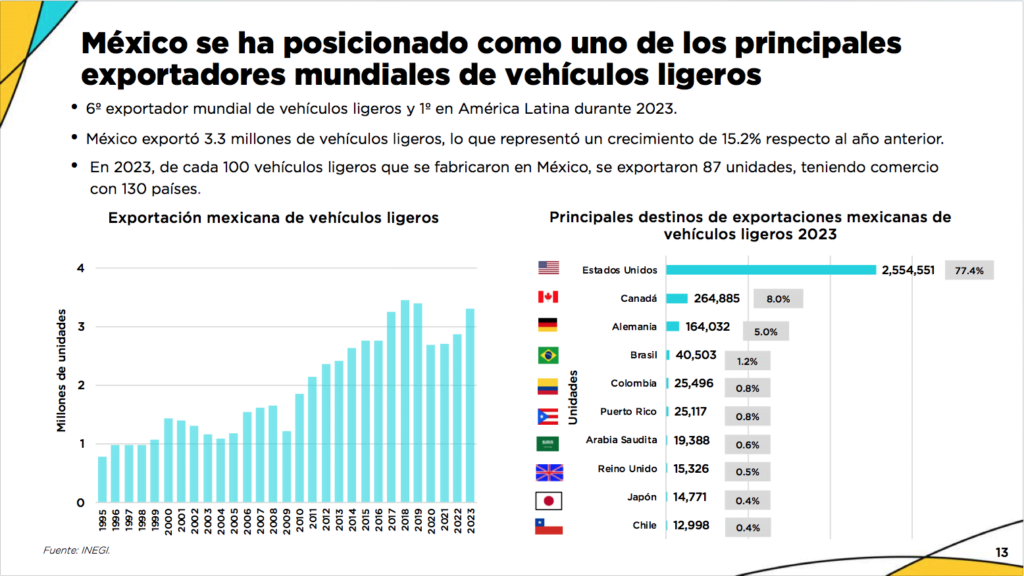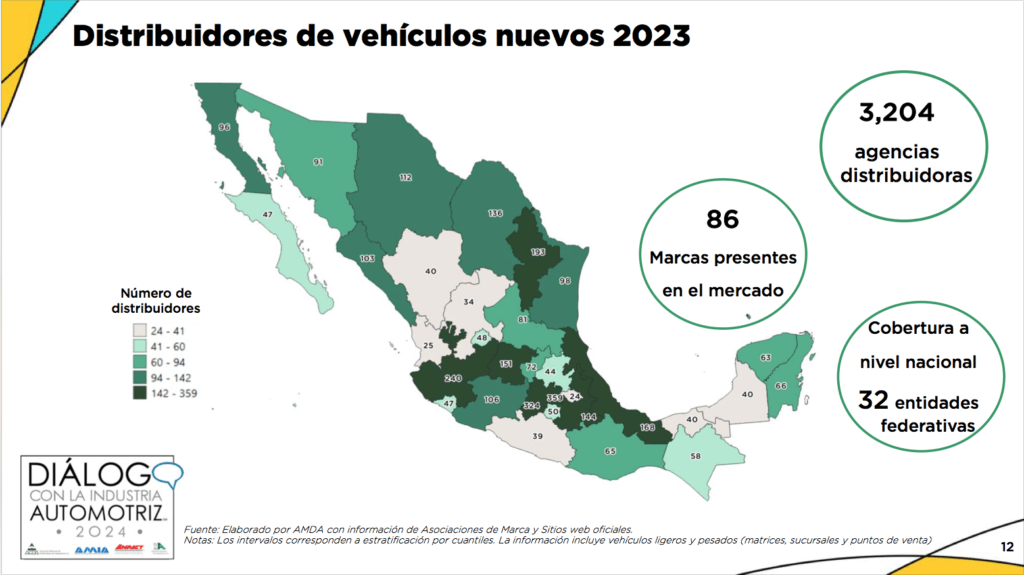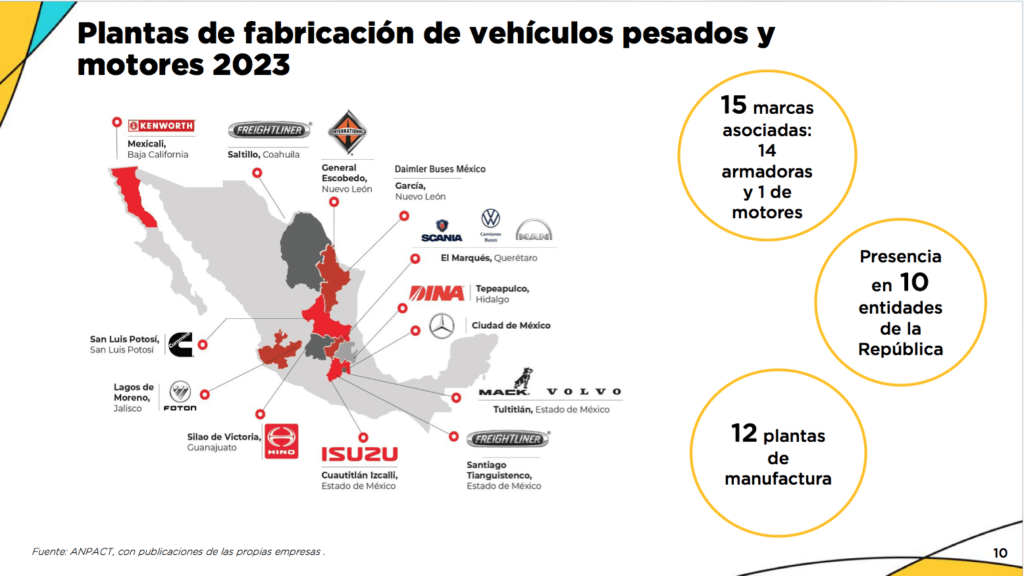AMIA, AMDA, INA and ANPACT present document: “Dialogue with the automotive industry 2024”, to the candidates for the presidency of Mexico, to join forces and give continuity to the leadership and dynamism of the Mexican automotive industry – The document brings together the vision of the associations on their current state, the challenges and opportunities for Mexico, as well as the most relevant indicators of the sector. He highlights the importance of strengthening joint work with the government in the face of the revision of the USMCA in 2026. On May 21 in Mexico City, the automotive leadership in our country, which includes representatives of the Mexican Association of Automotive Distributors (AMDA), the Mexican Association of the Automotive Industry (AMIA), the National Association of Bus, Truck and Tractor Producers (ANPACT) and the National Auto Parts Industry (INA), presented to the national press the document: “Dialogue with the Automotive Industry 2024”, at the Marriot Reforma Hotel, which has as its main objective to join efforts between the Automotive Sector, with the authorities of the different levels of government and academia, to maintain the world leadership of the Mexican automotive industry, focusing on fundamental pillars such as the domestic market, environment, social development, production and foreign trade. Guillermo Rosales Zárate, Executive President of AMDA, highlighted the importance of the
public and legal security for the future sustainability of the Automotive Sector. Proposed reforms such as the Public Vehicle Registry (REPUVE) and an administrative reform to speed up procedures. “An example of this is the urgency to modify the system of prevention of money laundering by the Tax Administration System (SAT) facilitating compliance for the Obligated Entities,” he said. For his part, Odracir Barquera, Director General of AMIA, emphasized the coordination between actors in the sector and authorities, underscoring the importance of the USMCA and proposing a positive review of it. “We also seek to achieve a positive review of the USMCA, consolidating it as a fundamental pillar for our country,” Barquera emphasized. Virginia Olalde, Director of Foreign Trade and Economic Studies of ANPACT, commented: “This document shows the relevance of the Automotive Sector as an economic and social development trigger in Mexico. In addition, it highlights the high integration of the automotive industry in the North American region based on the USMCA, a legal instrument that guarantees regulatory certainty.”
Olalde stressed that “The document ‘Automotive Industry Dialogue 2024’ reflects the commitment of the Automotive Sector towards a sustainable future, highlighting two pillars Fundamental: decarbonization and the importance of fleet renewal with Financial Instruments . With a comprehensive vision, the sector is committed to technologies and essential coordination with the Government of Mexico, which is crucial to maintain leadership in production and export, strengthen the domestic market and reduce emissions.” Finally, Armando Cortés, Director General of the INA, emphasized the importance of the availability of clean and sufficient energy for the sustainable growth of the sector in dialogue with the next government. Cortés underlined the relevance of customs and trade facilitation as elements vital to maintain the global competitiveness of the sector, simplifying processes and reducing trade barriers to further boost economic growth in Mexico in the international market.
In this edition, the work of the sector in the social development of the country is highlighted, through coordination between industry, government and academia to align the educational offer with labor needs. This is reflected in training programs, promotion of inclusion and promotion of diversity. The document “Dialogue with the Automotive Industry 2024” presents proposals and strategies for the automotive industry to reach positions of greater leadership in the future in key areas such as production, foreign trade, domestic market, environment and social development, among others.
